Suhagra-50 Tablet 4's
MRP ₹137
(Inclusive of all Taxes)
₹20.6 Cashback (15%)
Provide Delivery Location
Online payment accepted
 Prescription drug
Prescription drugWhats That
Composition :
Manufacturer/Marketer :
Consume Type :
Expires on or after :
Return Policy :
About Suhagra-50 Tablet
Suhagra-50 Tablet belongs to the group of medicines called phosphodiesterase type-5 (PDE 5) inhibitors primarily used to treat erectile dysfunction (impotence) in adult men. Additionally, Suhagra-50 Tablet may also be used to treat pulmonary arterial hypertension (high blood pressure in the lungs) in adults to improve the ability to exercise and to slow down clinical worsening.
Suhagra-50 Tablet works by relaxing the blood vessels in the penis, thereby allowing the blood to flow into the penis when the person is sexually excited. Thus, Suhagra-50 Tablet helps treat erectile dysfunction. Suhagra-50 Tablet relaxes the blood vessels, increases the blood supply to the lungs and reduces the workload of the heart. Thereby, treating pulmonary hypertension.
You are advised to take Suhagra-50 Tablet for as long as your doctor has prescribed it for you, depending on your medical condition. In some cases, Suhagra-50 Tablet may cause side effects such as headache, nausea, dizziness, indigestion and stomach upset. Most of these side effects do not require medical attention and will resolve gradually over time. However, you are advised to talk to your doctor if you experience these side effects persistently.
Do not take Suhagra-50 Tablet if you are allergic to any of the components or if you are taking nitrate medicines or riociguat (a drug used to treat pulmonary hypertension). Suhagra-50 Tablet is not recommended for use in children. Consult your doctor if you experience hearing or visual impairment. Avoid consumption of alcohol as it may impair your ability to get an erection. Taking Suhagra-50 Tablet after a heavy meal might take longer time for the medicine to work; therefore you are advised to take Suhagra-50 Tablet with light meals.
Uses of Suhagra-50 Tablet
Directions for Use
Key Benefits
Suhagra-50 Tablet belongs to the group of medicines called phosphodiesterase type-5 (PDE 5) inhibitors, primarily used to treat erectile dysfunction (impotence) in adult men and pulmonary arterial hypertension (high blood pressure in the lungs) in adults to improve the ability to exercise and to slow down clinical worsening. Suhagra-50 Tablet works by relaxing the blood vessels in the penis, thereby allowing the blood to flow into the penis when the person is sexually excited. However, Suhagra-50 Tablet helps the person to get an erection only if he is sexually stimulated. Suhagra-50 Tablet relaxes the blood vessels, increases the blood supply to the lungs and reduces the workload of the heart. Thereby, treats pulmonary hypertension.
Storage
- Hydrate your body: Drink enough water to prevent dehydration and headaches.
- Calm Your Mind: Deep breathing and meditation can help you relax and relieve stress.
- Rest and Recharge: Sleep for 7-8 hours to reduce headache triggers.
- Take rest: lie down in a quiet, dark environment.
- Cold or warm compresses can help reduce tension.
- Stay Upright: Maintain good posture to keep symptoms from getting worse.
- To treat headaches naturally, try acupuncture or massage therapy.
- Over-the-counter pain relievers include acetaminophen and ibuprofen.
- Prescription Assistance: Speak with your doctor about more substantial drug alternatives.
- Severe Headaches: Seek emergency medical assistance for sudden, severe headaches.
- Frequent Headaches: If you get reoccurring headaches, consult your doctor.
- Headaches with Symptoms: Seek medical attention if your headaches include fever, disorientation, or weakness.
- Take medications with food (if recommended): It can help prevent stomach distress and indigestion.
- Eat smaller, more frequent meals: Divide daily food intake into smaller, more frequent meals to ease digestion.
- Avoid trigger foods: Identify and avoid foods that trigger indigestion, such as spicy, fatty, or acidic foods.
- Stay upright after eating: Sit or stand upright for at least 1-2 hours after eating to prevent stomach acid from flowing into the oesophagus.
- Avoid carbonated drinks: Avoid drinking carbonated beverages, such as soda or beer, which can worsen indigestion.
- Manage stress: To alleviate indigestion, engage in stress-reducing activities like deep breathing exercises or meditation.
- Consult a doctor if needed: If indigestion worsens or persists, consult a healthcare professional to adjust the medication regimen or explore alternative treatments.
- Consult your doctor if you experience skin redness, itching, or irritation after taking medication.
- Your doctor may adjust your treatment plan by changing your medication or providing guidance on managing your erythema symptoms.
- Your doctor may recommend or prescribe certain medications to help alleviate symptoms.
- Apply cool compresses or calamine lotion to the affected skin area to reduce redness and itching.
- Stay hydrated by drinking plenty of water to help alleviate symptoms and keep your skin hydrated.
- Monitor your skin condition closely and promptly report any changes, worsening symptoms, or concerns to your healthcare provider.
- Prepare for a restful night's sleep: Develop a calming pre-sleep routine, like reading or meditation, to help your body relax and prepare for sleep.
- Create a sleep-conducive Environment: Make bedroom a sleep haven by ensuring it is quiet, dark and calm.
- Follow a Sleep Schedule: Go to bed and get up at the same time every day to help regulate your body's internal clock and increase sleep quality.
- Try relaxing techniques like deep breathing, mindfulness meditation and any others.
- Limit stimulating activities before bedtime: Avoid stimulating activities before bedtime to improve sleep quality.
- Monitor Progress: Keep track of your sleep patterns to identify areas for improvement.
- Consult a doctor if needed: If these steps don't improve your sleep, consult a doctor for further guidance and therapy.
- Consult your doctor if you experience skin redness, itching, or irritation after taking medication.
- Your doctor may adjust your treatment plan by changing your medication or providing guidance on managing your erythema symptoms.
- Your doctor may recommend or prescribe certain medications to help alleviate symptoms.
- Apply cool compresses or calamine lotion to the affected skin area to reduce redness and itching.
- Stay hydrated by drinking plenty of water to help alleviate symptoms and keep your skin hydrated.
- Monitor your skin condition closely and promptly report any changes, worsening symptoms, or concerns to your healthcare provider.
- Tell your doctor immediately if you experience shortness of breath after taking medication.
- Your doctor may adjust the medication regimen or dosage or give alternative medical procedures to minimize the symptoms of shortness of breath.
- Monitor your oxygen levels and breathing rate regularly to track changes and potential side effects.
- For controlling stress and anxiety, try relaxation techniques like deep breathing exercises, meditation, or yoga.
- Make lifestyle changes, such as quitting smoking, exercising regularly, and maintaining a healthy weight.
- Seek emergency medical attention if you experience severe shortness of breath, chest pain, or difficulty speaking.
- Follow up regularly with your doctor to monitor progress, adjust treatment plans, and address any concerns or questions.
- Consult your doctor if you experience nasal congestion, runny nose, or sinus pressure after taking medication.
- Your doctor may adjust your treatment plan by changing your medication, adding new medications, or providing guidance on managing your rhinitis symptoms.
- If advised by your doctor, use nasal decongestants or saline nasal sprays to help relieve nasal congestion.
- Practice good hygiene, including frequent handwashing, avoiding close contact with others, and avoiding sharing utensils or personal items.
- Stay hydrated by drinking plenty of water and other fluids to help thin out mucus and soothe your nasal passages.
Drug Warnings
Do not take Suhagra-50 Tablet if you are allergic to any of the components, if you are taking medicines called nitrates which are used to treat angina or chest pain, or guanylate cyclase stimulator medicines (used to treat heart failure and PAH). Inform your doctor if you have/had heart problems such as angina, heart attack, irregular heartbeat, or heart failure, blood circulation problems, low blood pressure, eye or ear problems, sickle cell anaemia (an abnormality of red blood cells), multiple myeloma (cancer of bone marrow), leukaemia (cancer of blood cells), stomach ulcer, bleeding problems, problems with the shape of the penis or Peyronie's disease (a condition that causes painful erections).
Drug-Drug Interactions
Drug-Drug Interactions
Login/Sign Up
Coadministration of Isosorbide dinitrate and Suhagra-50 Tablet can increase the risk of low blood pressure.
How to manage the interaction:
Taking Isosorbide dinitrate and Suhagra-50 Tablet together is generally avoided as it can lead to an interaction, it can be taken only if advised by your doctor. However, if you experience dizziness, lightheadedness, fainting, headache, flushing, heart palpitations, and priapism (prolonged and painful erection unrelated to sexual activity) contact your doctor immediately. Do not discontinue any medications without first consulting your doctor.
Co-administration of Suhagra-50 Tablet with Riociguat may lower the blood pressure.
How to manage the interaction:
Taking Riociguat and Suhagra-50 Tablet together is generally avoided as it can lead to an interaction, it can be taken if advised by your doctor. However, if you experience any symptoms like dizziness, lightheadedness, fainting, flushing, headache, and nasal congestion, contact a doctor immediately. Do not discontinue any medications without consulting a doctor.
Coadministration of Amprenavir and Suhagra-50 Tablet can increase the blood levels and effects of Suhagra-50 Tablet.
How to manage the interaction:
Taking Amprenavir and Suhagra-50 Tablet together is not recommended as it can lead to an interaction, it can be taken if advised by your doctor. However, if you experience any symptoms like nausea, shortness of breath, dizziness, lightheadedness, fainting, visual disturbances, ringing in the ears, vision or hearing loss, chest pain or tightness, irregular heartbeat, and/or priapism (prolonged and painful erection unrelated to sexual activity), contact your doctor immediately. Do not discontinue any medications without first consulting your doctor.
Coadministration of Indinavir and Suhagra-50 Tablet can increase the blood levels and side effects of Suhagra-50 Tablet.
How to manage the interaction:
Taking Indinavir and Suhagra-50 Tablet together is avoided as it can lead to an interaction, it can be taken if advised by your doctor. However, if you experience any symptoms like nausea, shortness of breath, dizziness, lightheadedness, fainting, visual disturbances, ringing in the ears, vision or hearing loss, chest pain or tightness, irregular heartbeat, and/or priapism (prolonged and painful erection unrelated to sexual activity), contact your doctor immediately. Do not discontinue any medications without first consulting your doctor.
Combining Amyl nitrite and Suhagra-50 Tablet can increase the risk or severity of lower blood pressure.
How to manage the interaction:
Taking Amyl nitrite and Suhagra-50 Tablet together is avoided as it can lead to an interaction, it can be taken only when advised by your doctor. However, if you experience any symptoms like dizziness, lightheadedness, fainting, headache, flushing, heart palpitations, and priapism (prolonged and painful erection unrelated to sexual activity), contact your doctor immediately. Do not discontinue any medications without first consulting your doctor.
Coadministration of Fosamprenavir and Suhagra-50 Tablet can increase the blood levels and effects of Suhagra-50 Tablet.
How to manage the interaction:
Taking Fosamprenavir and Suhagra-50 Tablet together is not recommended as it can lead to an interaction, it can be taken if advised by your doctor. However, if you experience any symptoms like nausea, shortness of breath, dizziness, lightheadedness, fainting, visual disturbances, ringing in the ears, vision or hearing loss, chest pain or tightness, irregular heartbeat, and/or priapism (prolonged and painful erection unrelated to sexual activity), contact your doctor immediately. Do not discontinue any medications without first consulting your doctor.
Combining Telaprevir and Suhagra-50 Tablet can increase the blood levels and effects of Suhagra-50 Tablet.
How to manage the interaction:
Taking Telaprevir and Suhagra-50 Tablet together is not recommended as it can lead to an interaction, it can be taken if advised by your doctor. However, if you experience any symptoms like nausea, shortness of breath, dizziness, lightheadedness, fainting, visual disturbances, ringing in the ears, vision or hearing loss, chest pain or tightness, irregular heartbeat, and/or priapism (prolonged and painful erection unrelated to sexual activity), contact your doctor immediately. Do not discontinue any medications without first consulting your doctor.
Combining Darunavir and Suhagra-50 Tablet can increase the blood levels and effects of Suhagra-50 Tablet.
How to manage the interaction:
Taking Darunavir and Suhagra-50 Tablet together is avoided as it can lead to an interaction, it can be taken if advised by your doctor. However, if you experience any symptoms like nausea, shortness of breath, dizziness, lightheadedness, fainting, visual disturbances, ringing in the ears, vision or hearing loss, chest pain or tightness, irregular heartbeat, and/or priapism (prolonged and painful erection unrelated to sexual activity), contact your doctor immediately. Do not discontinue any medications without first consulting your doctor.
Coadministration of Ritonavir and Suhagra-50 Tablet may significantly increase the blood levels of Suhagra-50 Tablet.
How to manage the interaction:
Taking Suhagra-50 Tablet with Ritonavir together is generally avoided as it can possibly result in an interaction, it can be taken only if your doctor has advised it. If you notice any of these symptoms like nausea, shortness of breath, dizziness, lightheadedness, fainting, visual disturbances, ringing in the ears, vision or hearing loss, chest pain or tightness, irregular heartbeat, and/or priapism (prolonged and painful erection unrelated to sexual activity), contact a doctor. Do not discontinue any medications without consulting a doctor.
Coadministration of Suhagra-50 Tablet with Nitroprusside can increase the risk of developing low blood pressure.
How to manage the interaction:
Taking Suhagra-50 Tablet with Nitroprusside together is generally avoided as it can lead to an interaction, it can be taken only if prescribed by your doctor. If you experience any side effects such as dizziness, lightheadedness, headache, or heart palpitations you should seek immediate medical attention. Do not discontinue any medications without consulting your doctor.
Drug-Food Interactions
Drug-Food Interactions
Login/Sign Up
Diet & Lifestyle Advise
- Maintaining a healthy weight, eating balanced diet and regular exercising may help you manage erectile dysfunction.
- Avoid consumption of alcohol as it may temporarily impair your ability to get an erection.
- Avoid usage of tobacco.
- Share intimate time with your partner.
Side Effects of Suhagra-50 Tablet
- Headache
- Nausea
- Dizziness
- Indigestion
- Stomach upset
Habit Forming
Therapeutic Class
All Substitutes & Brand Comparisons
RX
Out of StockDvgra 50mg Tablet
₹68.5
(₹15.41 per unit)
50% CHEAPERRX
Out of StockErot 50mg Tablet
Pax Healthcare
₹70
(₹15.75 per unit)
48% CHEAPERRX
Vigore 50 Red Tablet 4's
Zydus Healthcare Ltd
₹72.5
(₹16.33 per unit)
47% CHEAPER
Author Details
We provide you with authentic, trustworthy and relevant information
Drug-Diseases Interactions
Drug-Diseases Interactions
Login/Sign Up
FAQs
Drug-Drug Interactions Checker List
- NITROGLYCERIN
- RIOCIGUAT
- RITONAVIR
- KETOCONAZOLE
- ITRACONAZOLE
Special Advise
- Do not take Suhagra-50 Tablet more than once in a day if prescribed for erectile dysfunction.
- Talk to your doctor if the erection persists for greater than four hours after the sexual intercourse.
Disease/Condition Glossary
Erectile dysfunction: It is the inability to keep a hard and erect penis suitable for sexual intercourse. It could be a sign of physical or psychological conditions such as fear of sexual failure, anxiety, depression, low self-esteem, or stress. Certain health-related factors such as smoking, drinking, being overweight, being physically inactive, and high blood pressure also contribute to erectile dysfunction. Symptoms of erectile dysfunction include difficulty in getting an erection, difficulty in maintaining the erection during intercourse and decreased sexual desire.
Pulmonary arterial hypertension (PAH): High blood pressure affects the arteries in the lungs and heart, leading to pulmonary arterial hypertension. It occurs due to narrowed or blocked blood vessels which increases the workload on the heart. Symptoms include chest pain, dizziness, fatigue, and swelling in the legs and ankles.

Have a query?
Alcohol
Safe if prescribed
You are advised not to consume alcohol as it might temporarily impair your ability to get an erection.
Pregnancy
Consult your doctor
For erectile dysfunction: Suhagra-50 Tablet is not indicated for the treatment of sexual problems in women. For pulmonary arterial hypertension: Consult your doctor if you are pregnant. Your doctor will prescribe only if the benefits outweigh the risks.
Breast Feeding
Consult your doctor
For erectile dysfunction: Suhagra-50 Tablet is not indicated for the treatment of sexual problems in women. For pulmonary arterial hypertension: Consult your doctor if you are breastfeeding. Your doctor will prescribe only if the benefits outweigh the risks.
Driving
Safe if prescribed
Suhagra-50 Tablet may cause dizziness and blurred vision, therefore you are advised to drive and operate machinery only if you are alert.
Liver
Consult your doctor
Suhagra-50 Tablet should be used with caution in patients with liver impairment/liver disease. Dose adjustment may be needed in such patients.
Kidney
Consult your doctor
Suhagra-50 Tablet should be used with caution in patients with kidney disease. Dose adjustment may be needed in such patients.
Children
Safe if prescribed
Suhagra-50 Tablet is not recommended for children under the age of 18.
Recommended for a 30-day course: 4 Strips

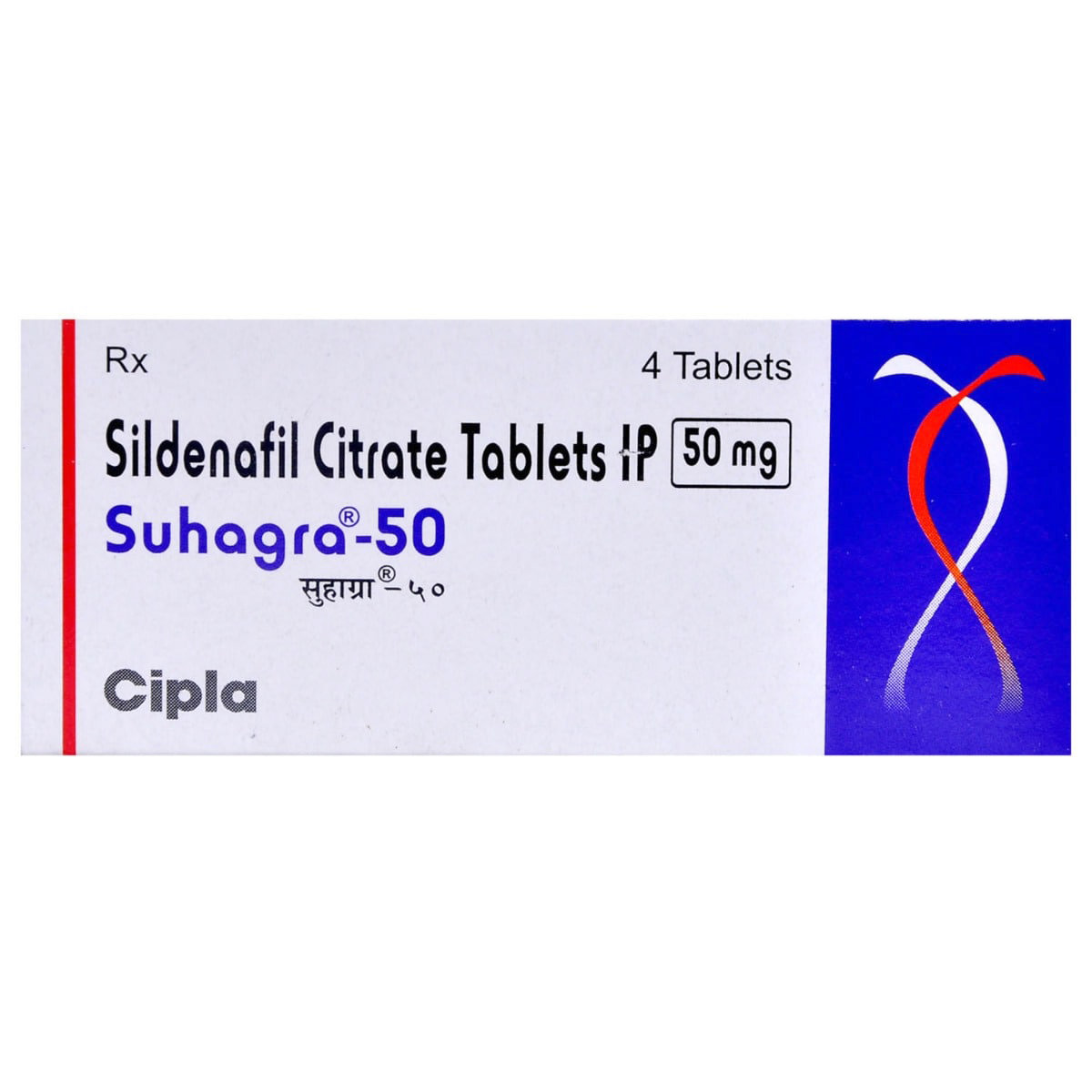
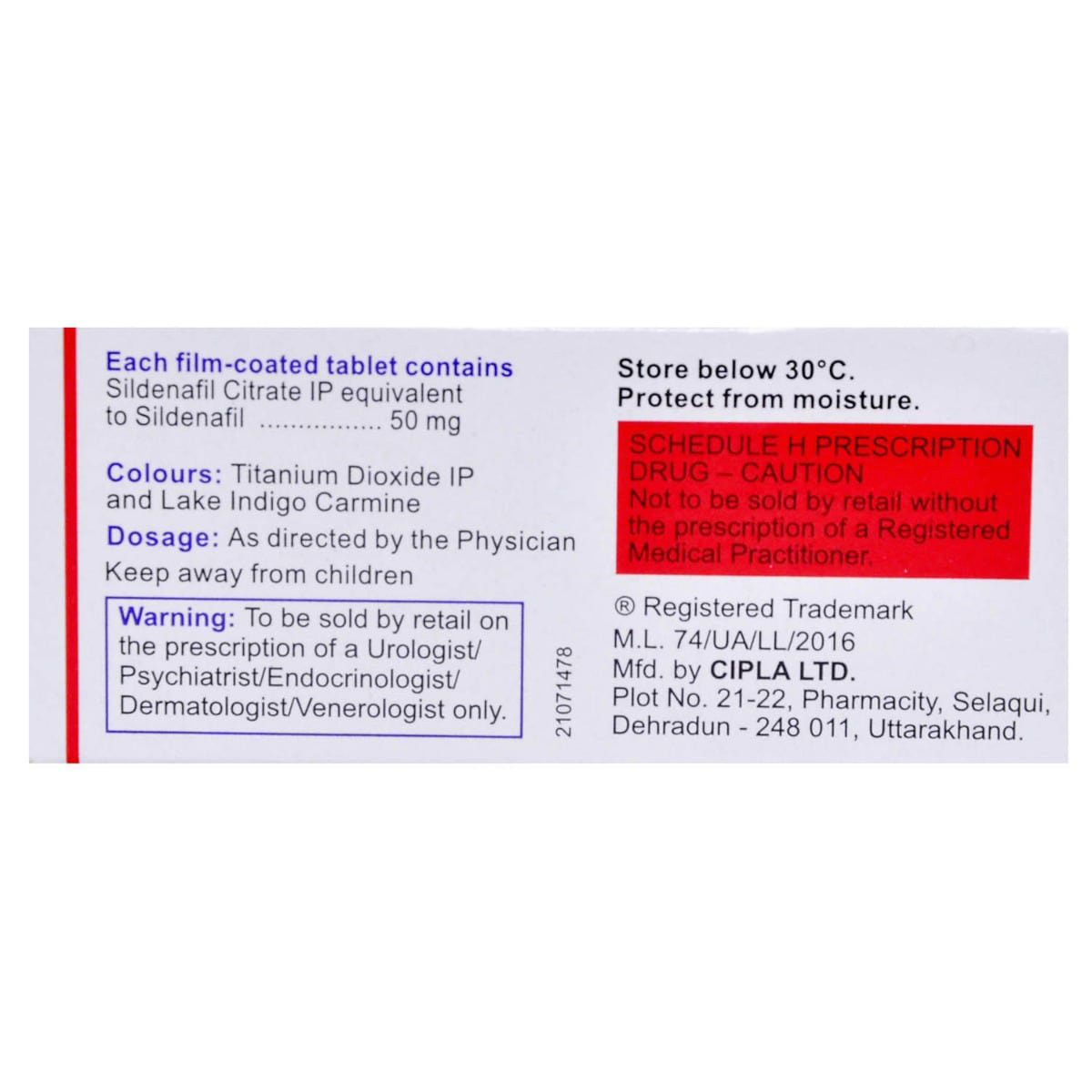
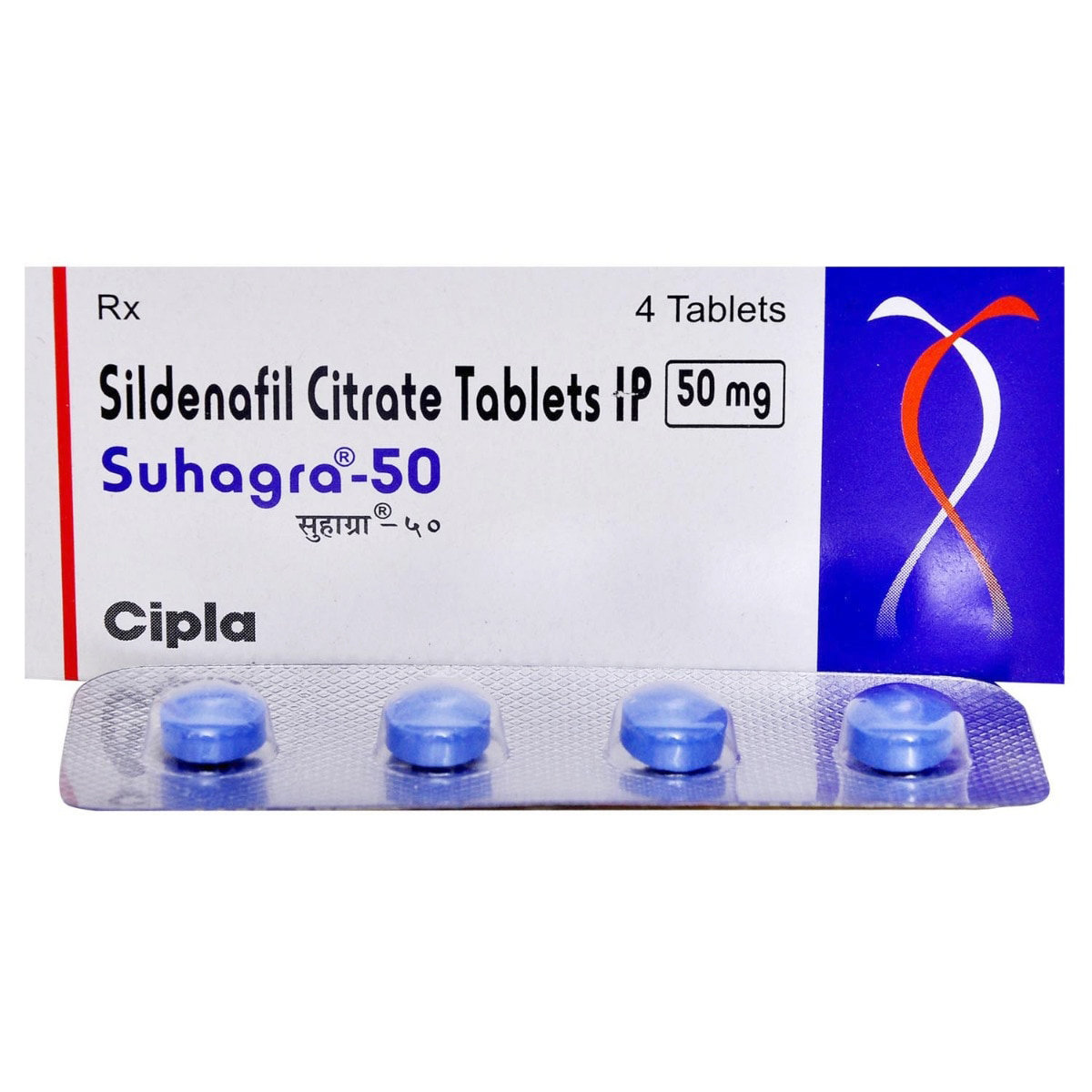
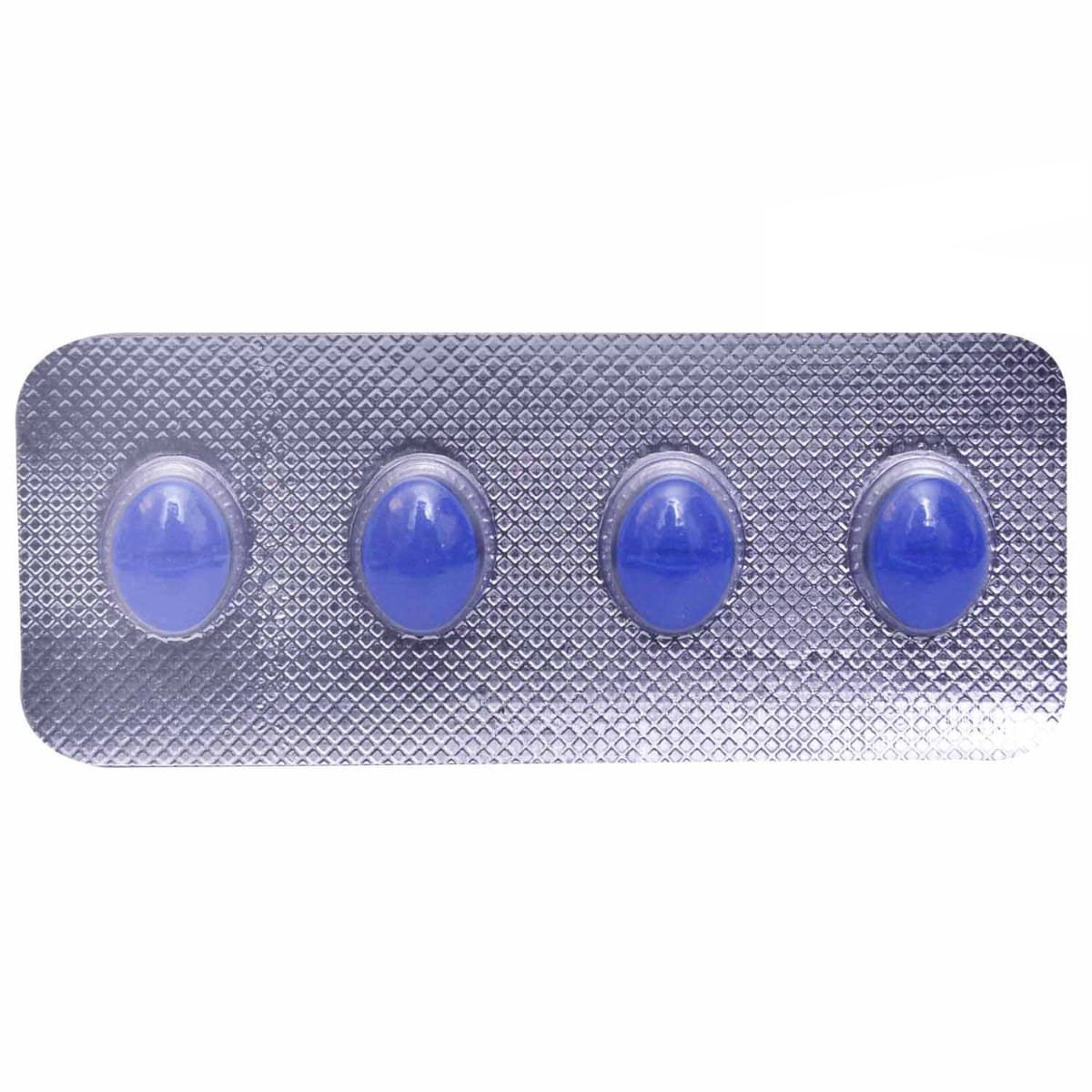
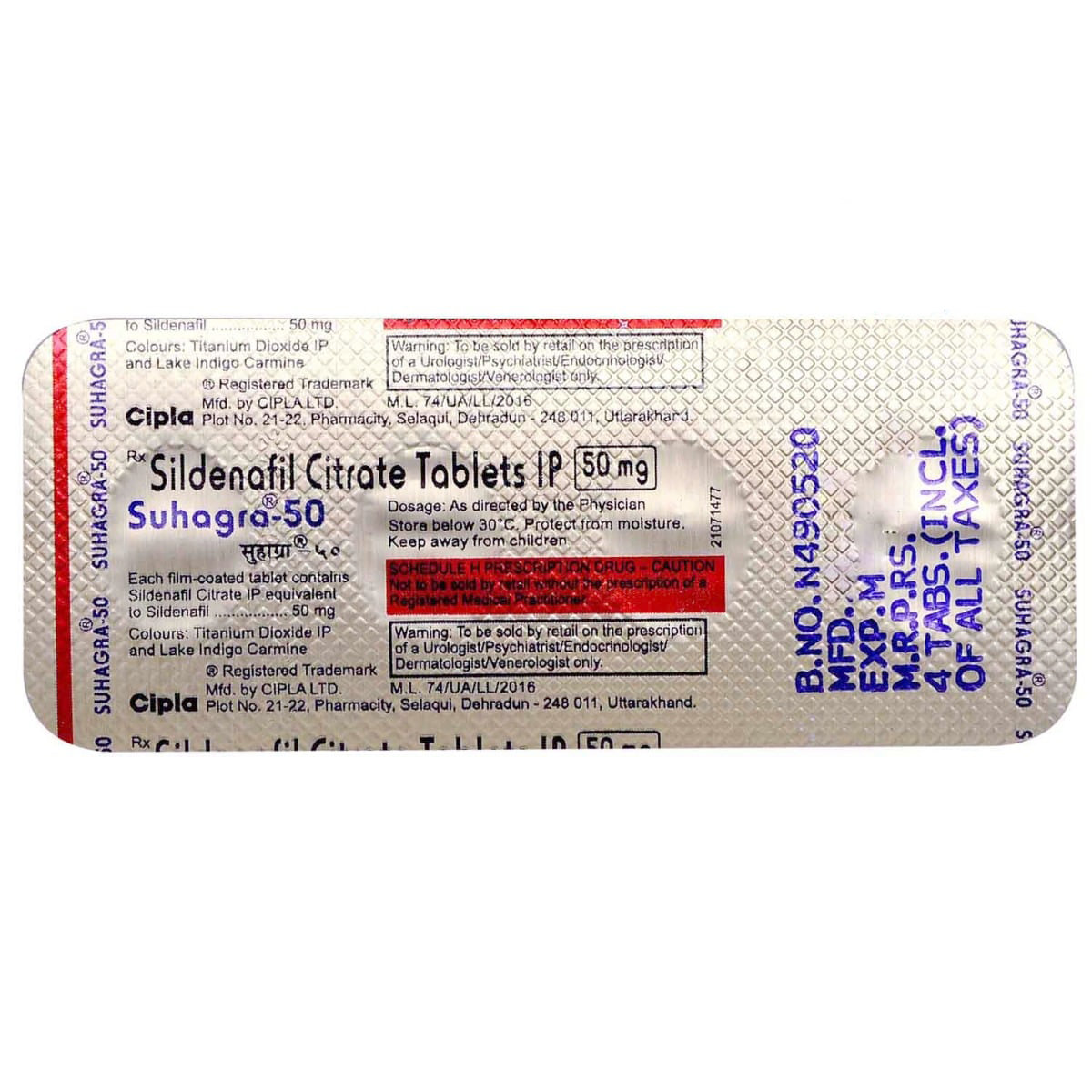







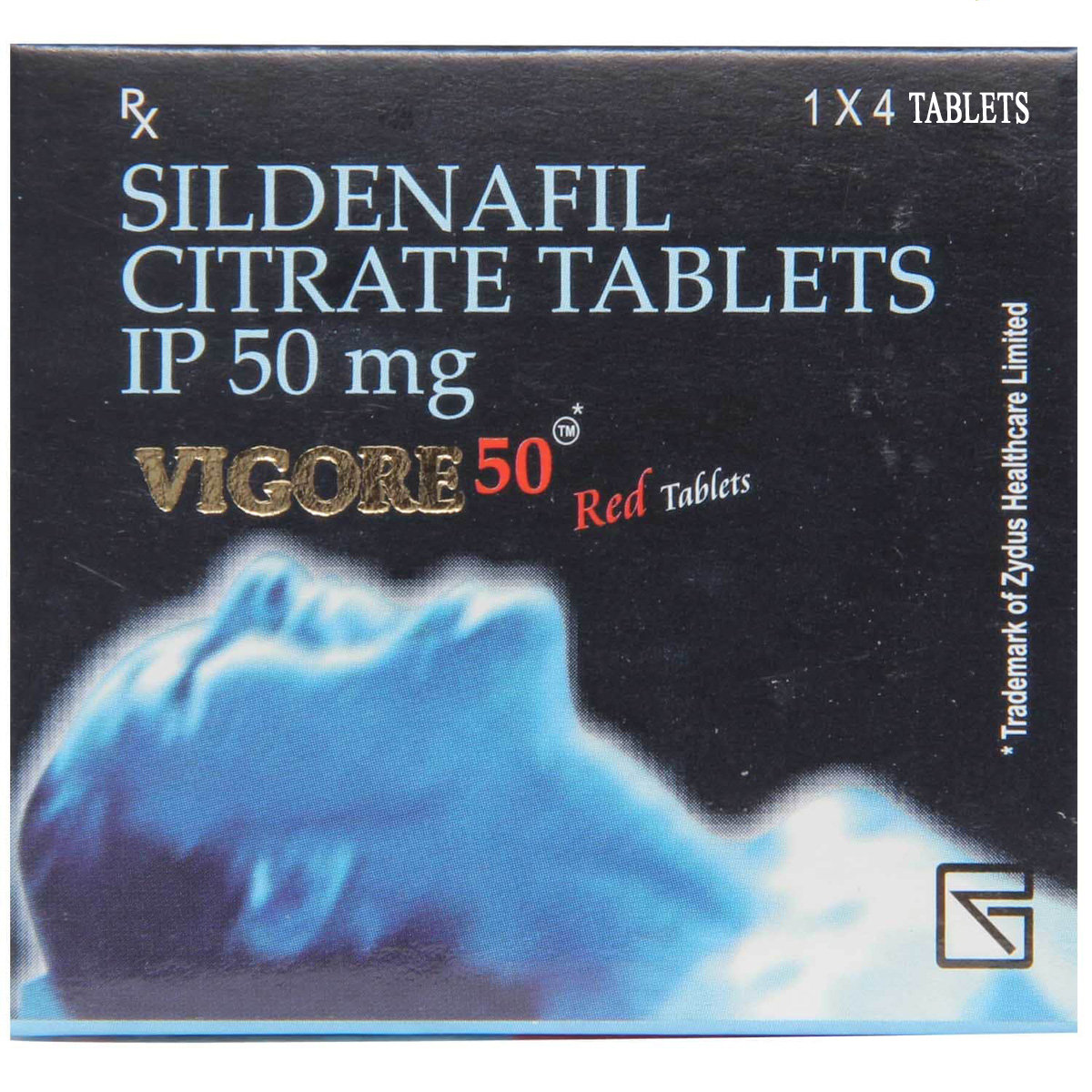

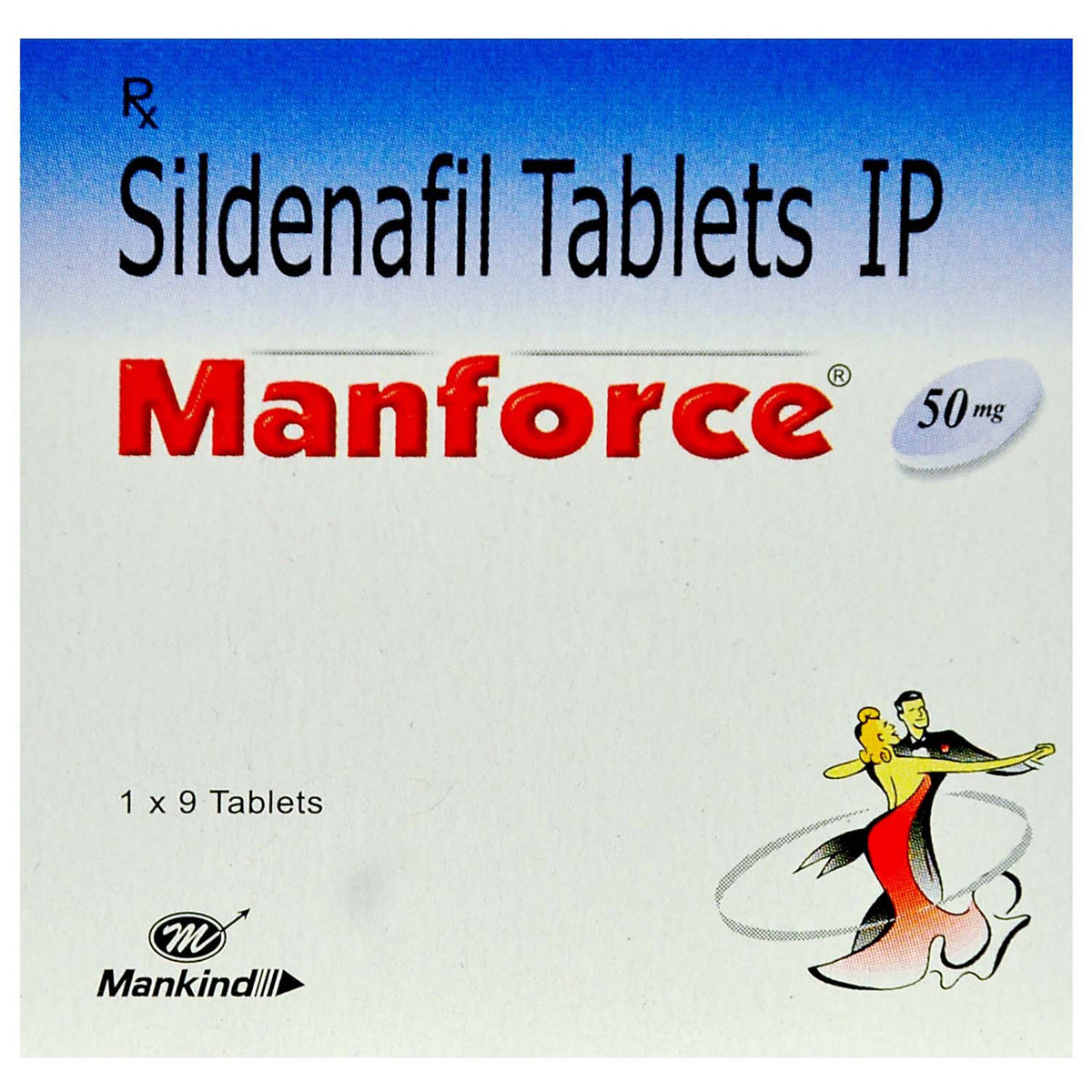

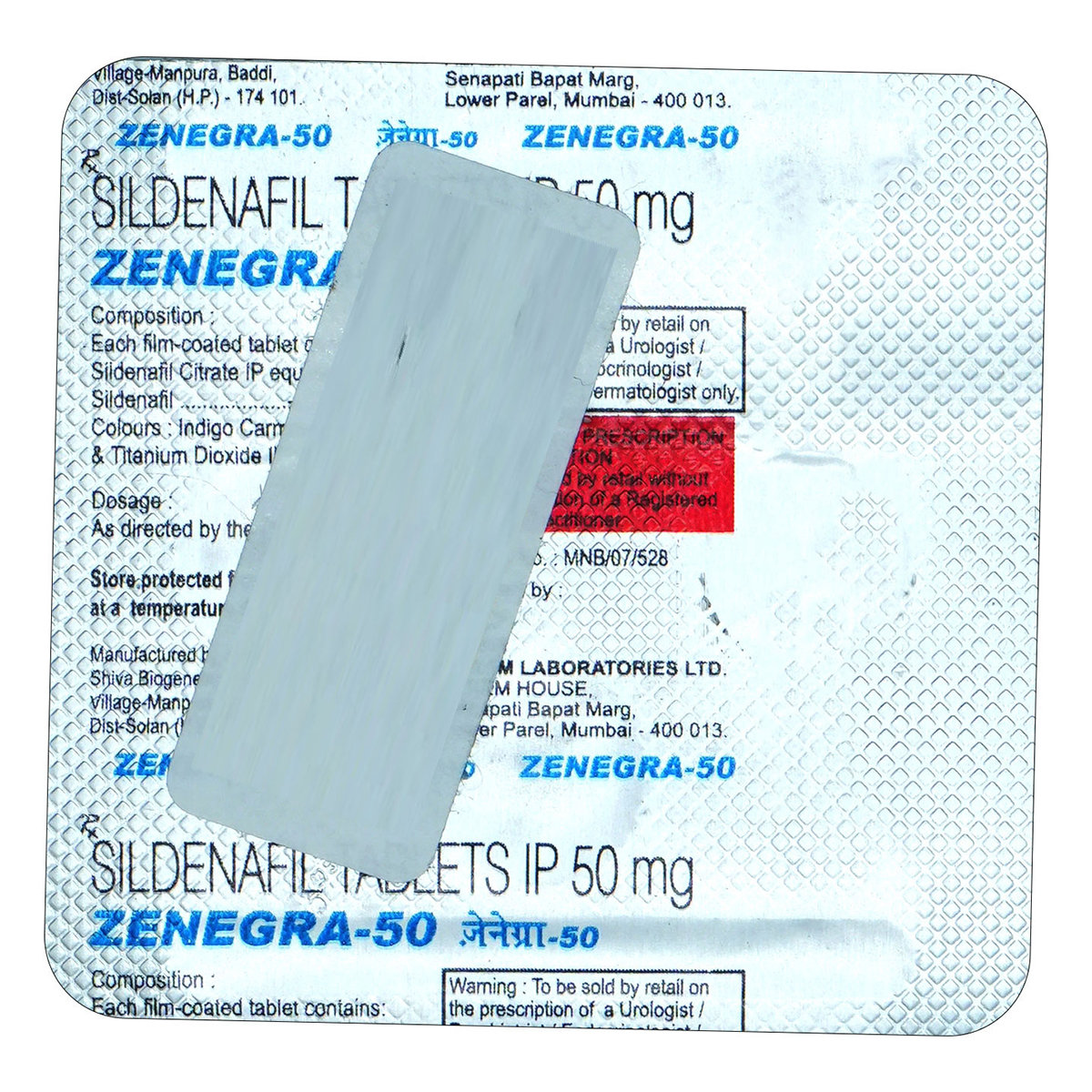
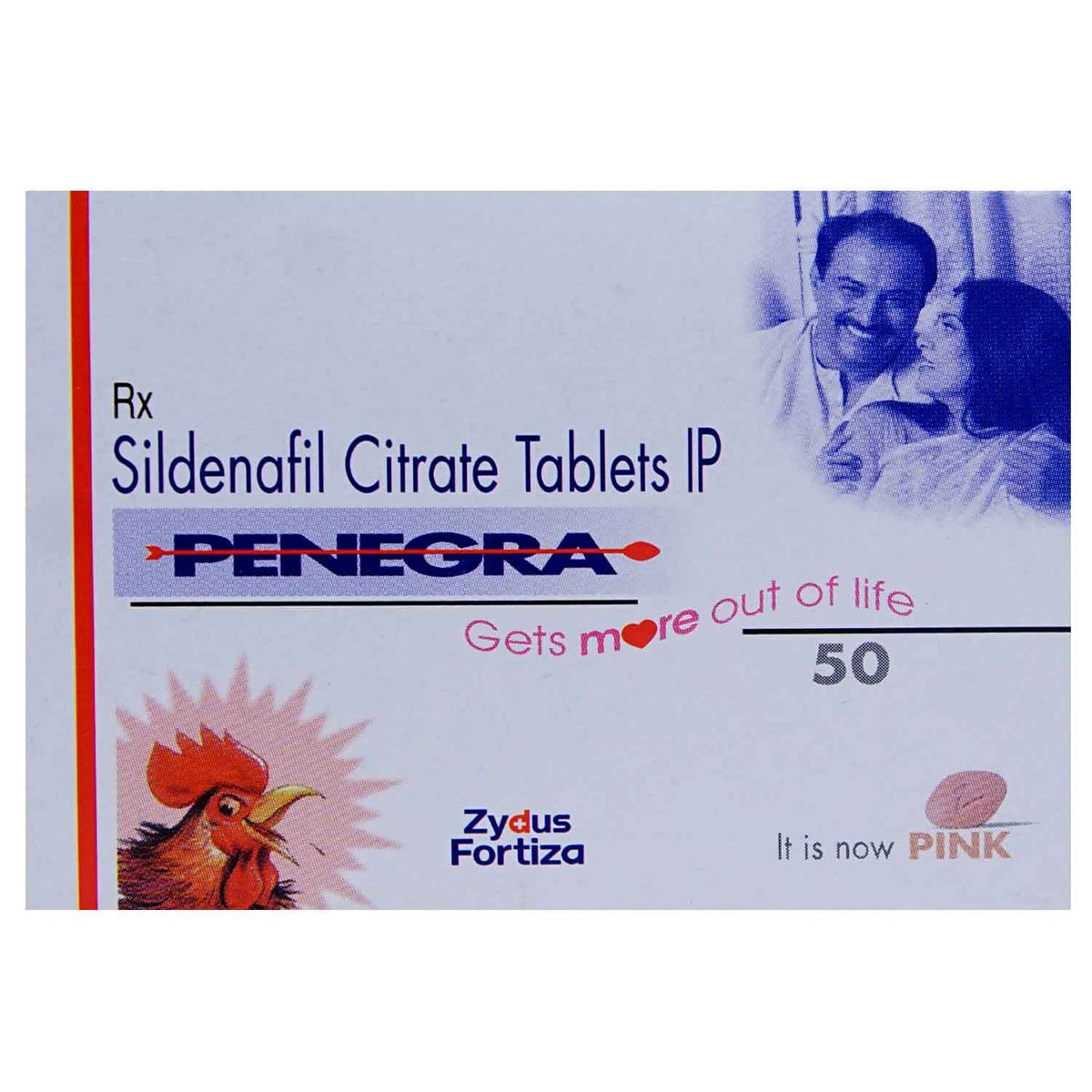

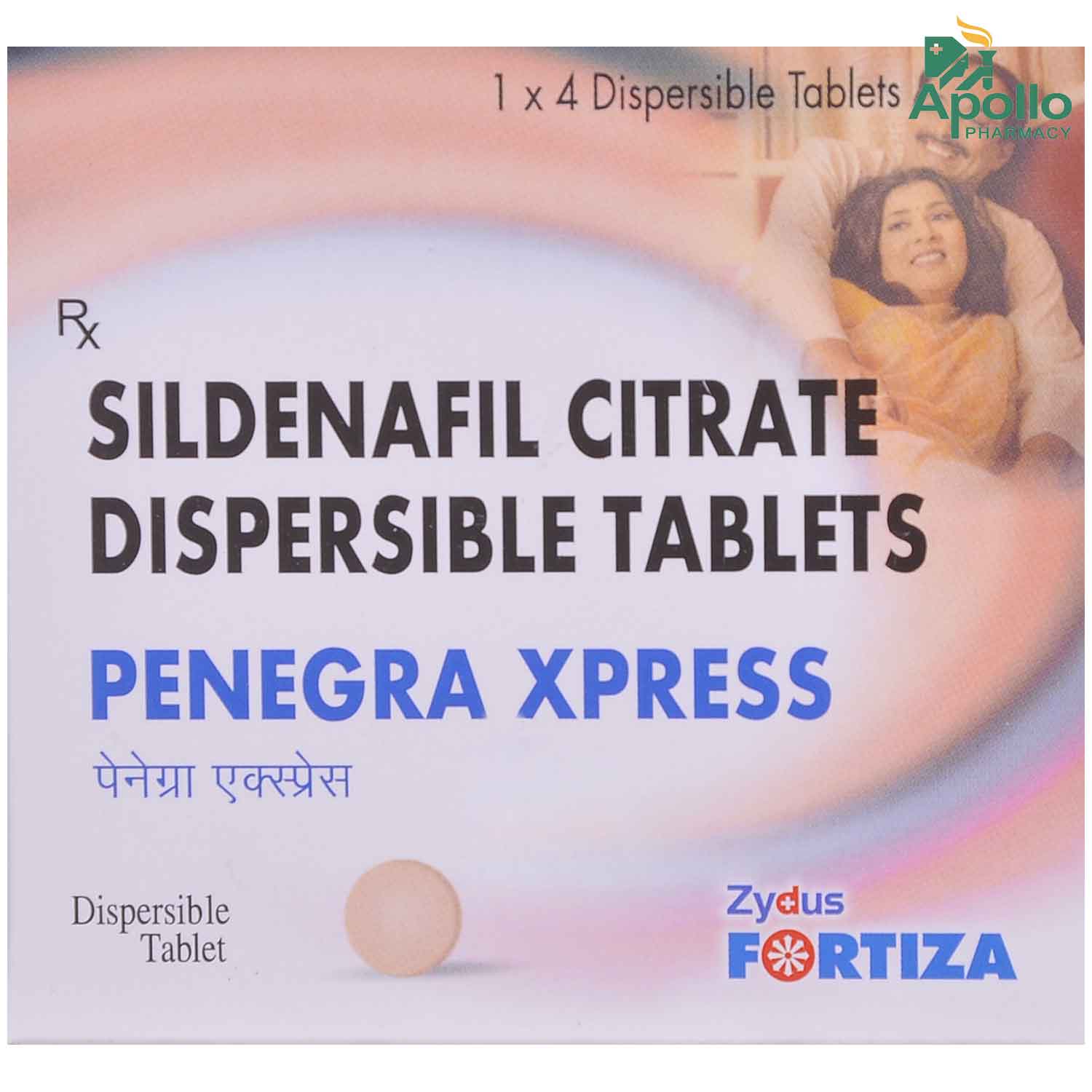

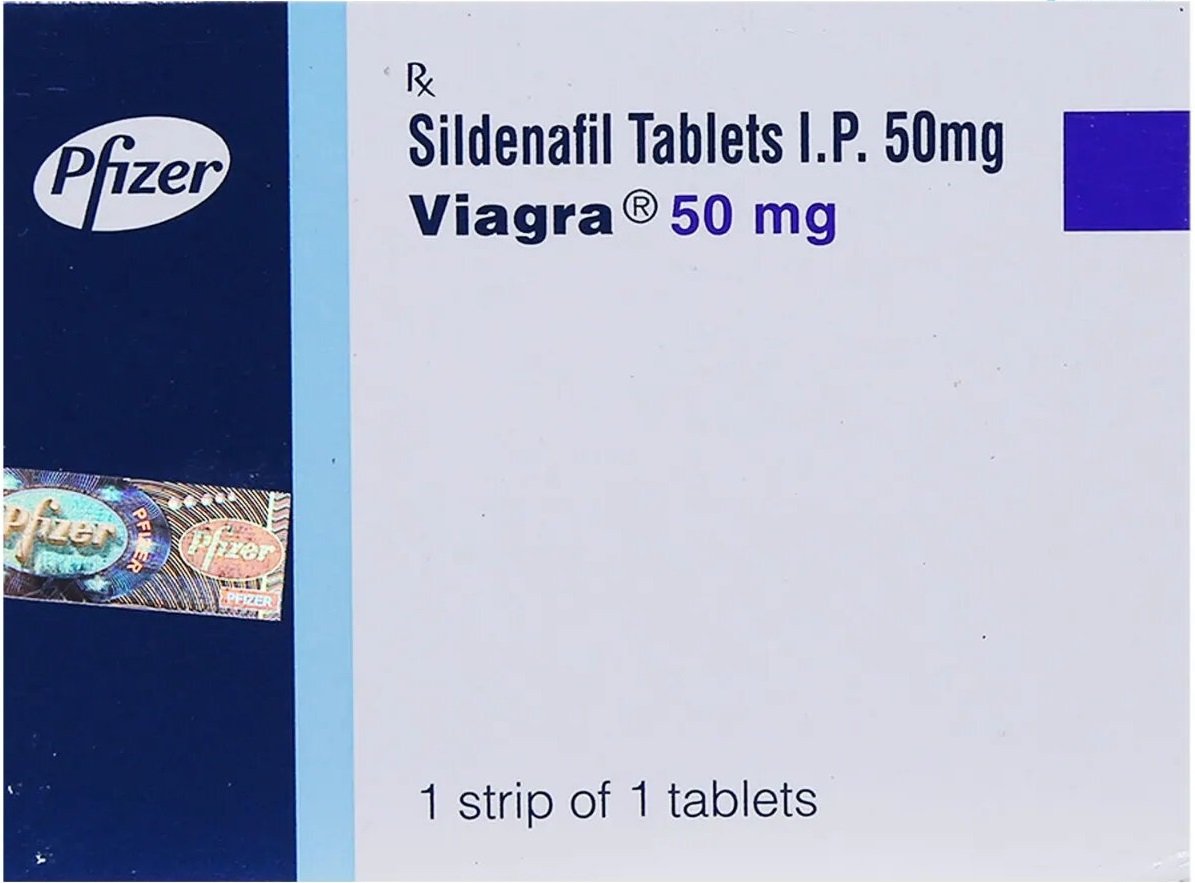

_0.jpg?tr=q-85)

